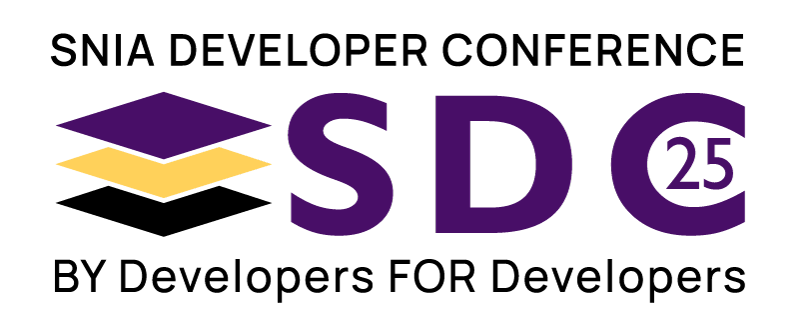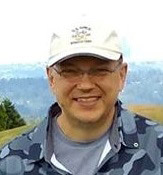SNIA Developer Conference September 15-17, 2025 | Santa Clara, CA

Product Circularity: Integrating Sustainability into Storage Design and Development

Abstract
The rapid growth of digital data and the increasing demand for storage solutions present challenges and sustainability opportunities. This session will explore how storage developers can embrace circular economy principles to reduce the environmental impact of storage devices and address supply chain constraints.
Key Takeaways:
- Understanding the Scope of Storage Emissions: Learn how Scope 1, 2, and 3 emissions apply to the storage industry and the importance of Life Cycle Assessments (LCAs) in evaluating environmental impact.
- The Circular Drive Initiative and Data Sanitization: Explore the potential of secure data erasure and refurbished drives to extend the life of storage devices and reduce waste.
- Carbon Accounting at the Rack Level: Discover how the OCP Carbon Accounting workgroup is developing frameworks for measuring carbon emissions at the data center level.
- Emerging Technologies for Sustainability: Learn about innovative approaches like immersion cooling for storage, which can lower energy consumption and extend device life.
- Quantifying the Economic Potential of Reuse: Gain insights from market analysis on the economic viability of refurbished storage devices and the factors influencing their value.
- Technical Requirements for Reuse: Understand the key metrics that determine the suitability of storage devices for reuse, including data security, device health, and performance.
This session is ideal for storage developers, engineers, architects, and anyone interested in the intersection of storage technology, sustainability, and the circular economy.
Join us to learn how you can contribute to a greener and more sustainable future for data storage!
Learning Objectives
Learn how you can contribute to a greener and more sustainable future for data storage
Understand the scope of storage emissions
Learn about the Circular Drive Initiative and Data Sanitization
Discover OCP Carbon Accounting workgroup initiatives

Related Sessions
Sustainability Initiatives by Open Compute Project – 3 Categories of work for Pro-Sustainability Design and Circular Economy in Storage
Open Compute Project’s (OCP) Sustainability Project was established in ~2020 as Datacenter Sustainability gained more and more importance. It has since spawned multiple workstreams working on different aspects of Sustainability in devices and are essential to enabling circular economy in Datacenter. Sustainable design encompasses a multitude of categories ranging from reduced power usage, power telemetry, carbon efficiency metrics, elongating lifespan of competitive use or telemetry for carbon metrics. This session will be delving into 3 broad but essential categories of work, which OCP has started exploring – Power Profile & Sustainability Metrics, Standardizing LCA methodology & Carbon Transparency and Tradeoffs to enable Circular Reuse.
All these 3 areas of work especially apply to Storage in Datacenters. In context of these 3 areas of work, we will discuss the crucial hurdles in enabling transparency of carbon-impact and implementing a circular economy. This is especially significant for Storage Media as they have particular concerns with circular reuse due to Security and TCO considerations . We will discuss the goals of each of these 3 categories of work and how they may help Design for Sustainability for Storage, by resolving some of the barriers faced.
Product Circularity: Integrating Sustainability into Storage Design and Development
The rapid growth of digital data and the increasing demand for storage solutions present challenges and sustainability opportunities. This session will explore how storage developers can embrace circular economy principles to reduce the environmental impact of storage devices and address supply chain constraints.
Key Takeaways:
- Understanding the Scope of Storage Emissions: Learn how Scope 1, 2, and 3 emissions apply to the storage industry and the importance of Life Cycle Assessments (LCAs) in evaluating environmental impact.
- The Circular Drive Initiative and Data Sanitization: Explore the potential of secure data erasure and refurbished drives to extend the life of storage devices and reduce waste.
- Carbon Accounting at the Rack Level: Discover how the OCP Carbon Accounting workgroup is developing frameworks for measuring carbon emissions at the data center level.
- Emerging Technologies for Sustainability: Learn about innovative approaches like immersion cooling for storage, which can lower energy consumption and extend device life.
- Quantifying the Economic Potential of Reuse: Gain insights from market analysis on the economic viability of refurbished storage devices and the factors influencing their value.
- Technical Requirements for Reuse: Understand the key metrics that determine the suitability of storage devices for reuse, including data security, device health, and performance.
This session is ideal for storage developers, engineers, architects, and anyone interested in the intersection of storage technology, sustainability, and the circular economy.
Join us to learn how you can contribute to a greener and more sustainable future for data storage!




